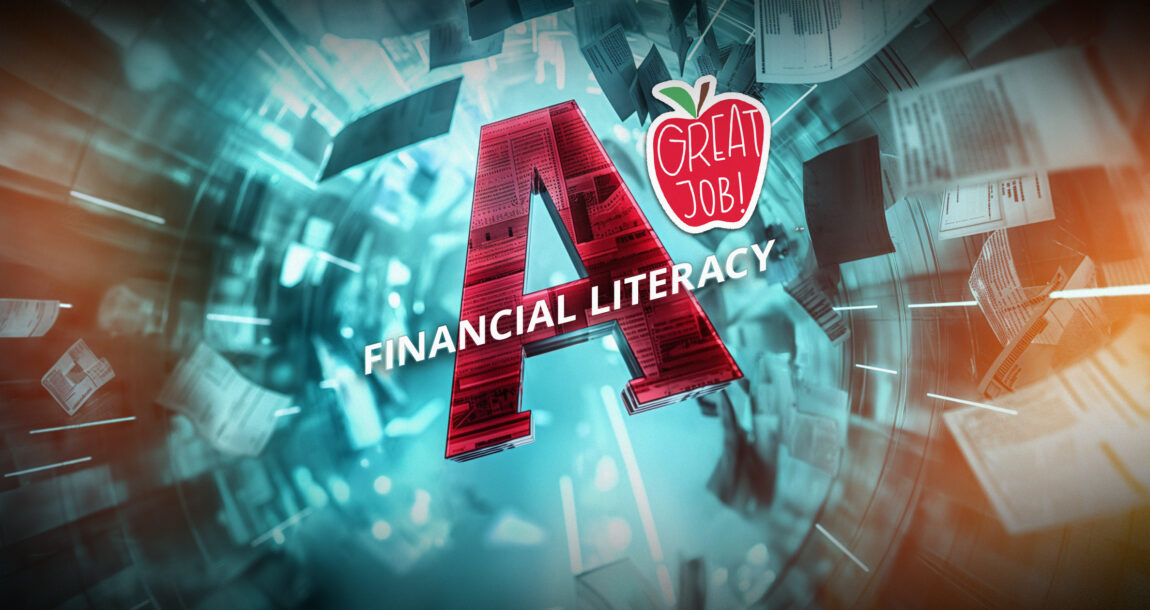More states earn an ‘A’ in financial literacy education

Half the 50 states are projected to get an “A” grade in financial literacy education for their high school students by 2028, according to a Champlain College report.
Champlain College, with pro bono legal research by the Law Firm Antiracism Alliance, presented its 2023 national report card on state efforts to improve financial literacy in high schools. The presentation was made during Tuesday’s meeting of the National Association of Insurance Commissions’ Life Insurance Workstream of the Special Committee on Race and Insurance.
John Pelletier, director of the Center for Financial Literacy at Champlain College, said LFAA believes financial literacy education is a social justice issue. “They believe that everyone should have access to financial literacy education in school,” he said.
Pelletier ran down the requirements for the letter grades assigned to each state in the national report card. They are:
Each state was assigned two grades: one based on the state’s status at the time of the report, and one based on whether that was any pending policy change.
Change is happening slowly, Pelletier said, with only five states receiving an A grade in 2017 and seven states reaching A status by 2023. However, change is on the way.
Pelletier said so many states are in the process of mandating financial literacy education that 25 states are projected to hit an A grade by 2028. Fourteen states are projected to attain a B grade by that time, while six states will be graded a C. Eight states are projected to be graded a D or an F by 2028.
What does success in high school financial literacy look like? Pelletier described the four keys:
One challenge in conducting successful high school financial literacy programs is the need for trained teachers, Pelletier said. He predicted that by 2028, more than 32,000 educators will be needed for the states that are projected to reach A or B status.
“We need teachers,” he said. “We must get substantive, high-value training to teachers and hopefully make it free.”
In a related issue, Mike Humphreys, Pennsylvania Insurance Commissioner, discussed a proposed policy statement that will put NAIC on record as supporting state legislation to require financial literacy courses as a prerequisite to high school graduation.
“In discussing financial literacy education, particularly in high schools, there’s no such thing as being too early to teach financial literacy,” he said.
Susan Rupe is managing editor for InsuranceNewsNet. She formerly served as communications director for an insurance agents' association and was an award-winning newspaper reporter and editor. Contact her at [email protected]. Follow her on X @INNsusan.
© Entire contents copyright 2024 by InsuranceNewsNet.com Inc. All rights reserved. No part of this article may be reprinted without the expressed written consent from InsuranceNewsNet.com.
Susan Rupe is managing editor for InsuranceNewsNet. She formerly served as communications director for an insurance agents' association and was an award-winning newspaper reporter and editor. Contact her at [email protected].








The insurance industry hits a perfect storm in finding talent
State Farm accused of evading discovery in lawsuit over total loss values
Annuity News
- The structural rise of structured products
- How next-gen pricing tech can help insurers offer better annuity products
- Continental General Acquires Block of Life Insurance, Annuity and Health Policies from State Guaranty Associations
- Lincoln reports strong life/annuity sales, executes with ‘discipline and focus’
- LIMRA launches the Lifetime Income Initiative
More Annuity NewsHealth/Employee Benefits News
- Bloomfield-based health care giant Cigna plans to lay off 2,000 employees worldwide
- STATEHOUSE: 'We don't see the savings': Indiana Medicaid restructuring bill draws pushback
- New Findings from University of Pennsylvania Describe Advances in Managed Care (Improving the Evaluation of Low-Volume Hospitals): Managed Care
- University of Michigan Details Findings in Public Health (Medicaid Expansion and Rural-Urban Disparities in Postpartum Medicaid Coverage): Health and Medicine – Public Health
- Recent Studies from Stanford University Add New Data to Medical Devices and Surgical Technology (Widening Gaps in Episode of Care Markers between Medicare Managed Care and Medicare Fee-for-Service in Spinal Fusion): Medical Devices and Surgical Technology
More Health/Employee Benefits NewsLife Insurance News
Property and Casualty News
- FEMA Releases Preliminary Flood Maps for Cochise County Communities
- Jail Docket for the week of February 12, 2026
- BENNINGHOFF'S CONSUMER-FRIENDLY AUTO INSURANCE LEGISLATION BECOMES LAW
- Proposed Senate Bill would close auto insurance loophole
- Wildfire forum a wild success
More Property and Casualty News